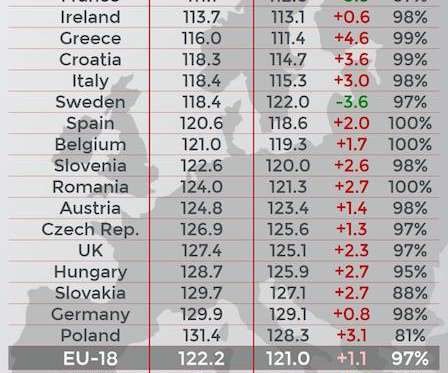JATO: new car average CO2 emissions highest in Europe since 2014; slow EV uptake insufficient to counter fewer diesels and more SUVs
Green Car Congress
MARCH 4, 2020
As expected, the combination of fewer diesel registrations and more SUVs continued to have an impact on emissions. g/km higher than in 2018, the delta was lower than the difference between the 2017 and 2018 results—where the growth was 2.4 g/km, almost half that produced by diesel and petrol vehicles.











Let's personalize your content